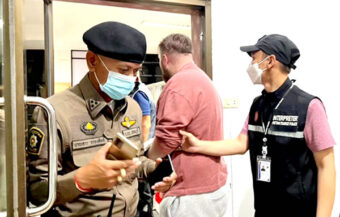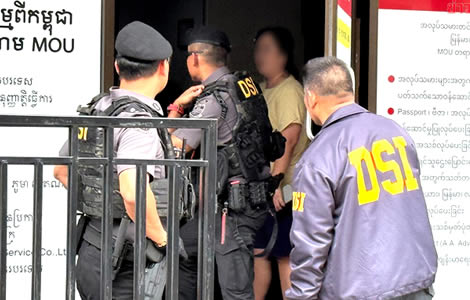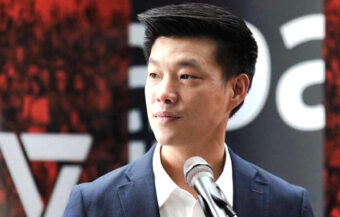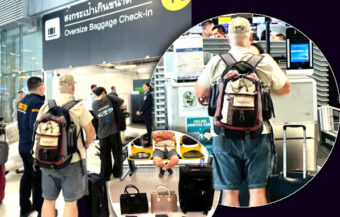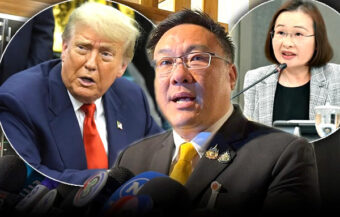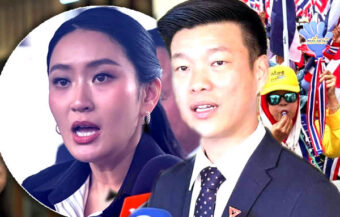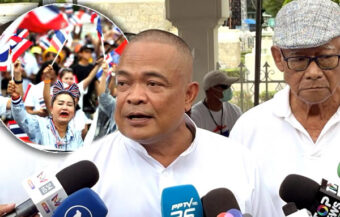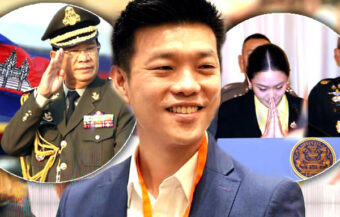Taiwan warns of rising Chinese military threats as Defence Minister Koo stresses urgency in response time. With record PLA incursions and heightened tensions, the new government is committed to stronger defences amid concerns over U.S. support ahead of the presidential election.
Taiwan is warning that Chinese offshore military activities near the island are becoming more threatening. So much so that Defence Minister Wellington Koo is warning that it will become increasingly difficult to recognise a real military offence from the mainland when it comes. The new government in Taipei, which took office in May, is known to be more hawkish when it comes to defending the island and ultimately the goal of Taiwan’s independence. In addition, ahead of the U.S. presidential election in November, tensions over the Taiwan Strait are elevated.
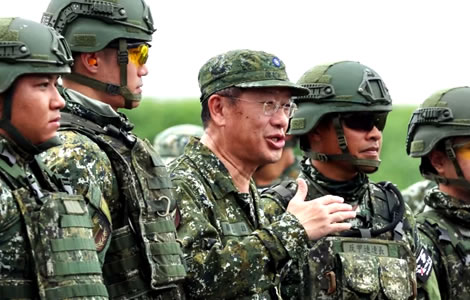
Taiwan’s Defence Minister Wellington Koo has issued a stark warning regarding China’s increasing military activity. He stated that this trend makes it more challenging to detect signs of an impending attack on Taiwan.
Koo emphasised that Taiwan must enhance its ability to respond to a “potential sudden contingency.” He noted that the country’s reaction time to emergencies cannot be as lengthy as in the past.
“We have to think about how we differentiate between peacetime and wartime,” Koo explained to reporters. The scale of China’s military manoeuvres is growing, making it harder to discern when these activities may escalate to actual conflict.
Rising Military Activity
Koo’s comments reflect the difficulty Taiwan faces as China’s military undertakes more frequent and larger exercises. The People’s Liberation Army (PLA) has increased its patrols and drills near Taiwan significantly since President Lai Ching-te took office in May.
The Chinese Communist Party has labeled Lai, whose Democratic Progressive Party does not recognize Taiwan as a part of China, as a “dangerous separatist.” This rhetoric has further heightened tensions in the region.
Elite US military unit Seal Team Six are training in Virginia for action against China over Taiwan if war breaks out
Taiwan’s military has recorded a staggering 2,076 PLA incursions this year into its air defense identification zone (ADIZ). This zone acts as a self-declared buffer, existing just outside Taiwan’s sovereign airspace.
Recent Military Movements
Koo made these remarks after a Chinese aircraft carrier group traversed waters near Taiwan’s northern coast. This maneuver marked the first time the group entered the Japanese contiguous zone, located between two of Japan’s southernmost islands.
Earlier this month, the PLA conducted its largest amphibious landing drills along China’s southeastern coast, directly opposite Taiwan. These annual exercises are widely viewed as rehearsals for a potential invasion.
In addition to military assets, China has increasingly deployed non-military government ships, including coastguard and marine research vessels, in waters surrounding Taiwan. Defence experts suggest these missions may be gathering ocean data for submarine warfare and simulating blockade strategies.
Koo stressed the importance of using observations of PLA activities to develop realistic training scenarios for Taiwan’s armed forces. This approach is vital for enhancing the military’s preparedness against any potential threat.
Taipei faces pressure to demonstrate its resolve to bolster its defences. Concerns have arisen regarding the United States’ commitment to Taiwan’s security, especially if Donald Trump wins the upcoming presidential election.
U.S. Relations and Support
The Taiwan Relations Act categorises any attempts to determine Taiwan’s future by non-peaceful means as a grave concern for the U.S. The law mandates Washington to supply Taiwan with defensive weapons and to maintain its capacity to counter coercion that threatens Taiwan’s security.
However, Trump has controversially suggested that Taiwan should compensate the U.S. for its defence. He claimed that the U.S. operates like an insurance company and that Taiwan “doesn’t give us anything.”
Lai’s cabinet has proposed a 7.7 percent increase in defence spending for the upcoming year, amounting to NT$647 billion (approximately US$20 billion). However, this figure represents a slight decrease in relation to Taiwan’s GDP, dropping from 2.5 percent this year to 2.45 percent.
Koo, who was the head of the National Security Council under Lai’s predecessor Tsai Ing-wen, took office in May. He has since advocated for more realistic training for Taiwan’s armed forces and has pushed to reduce bureaucratic obstacles.
Join the Thai News forum, follow Thai Examiner on Facebook here
Receive all our stories as they come out on Telegram here
Follow Thai Examiner here
Further reading:
War with China is a rising spectre that must be confronted as US General predicts conflict by 2025
Bad news from Beijing with Xi’s rise, the prospect of war and a divided world have greatly grown
Abe’s legacy will be his efforts to awaken Japan and build a defensive alliance against China
Former Pheu Thai finance minister expresses unease about US regional moves to counter China’s rise
Prayut unveils 3 ‘R’ strategy for a deeper and broader partnership with the US on the economy
Thailand and Japan announce defence pact on visit by Japanese PM to Bangkok ahead of US summit
US ASEAN summit as ‘dangerous directions’ now emerging in Asia as China’s regional power rises
US sanctions on Russia part of a ‘profound’ geopolitical shift to Asia as many US firms leave China
Thai tourism emphasises its neutrality in the Ukraine war, calls for a review of payment systems
Thailand votes on the right side of history in UN deploring Russian military action in Ukraine
China could be an economic time bomb sitting on Thailand’s doorstep as Evergrande collapse nears
UK Foreign Secretary visits Bangkok after AUKUS security pact further raises tensions with China
Trade pact with Hong Kong as Thailand negotiates both Chinese and new western trade relationships

